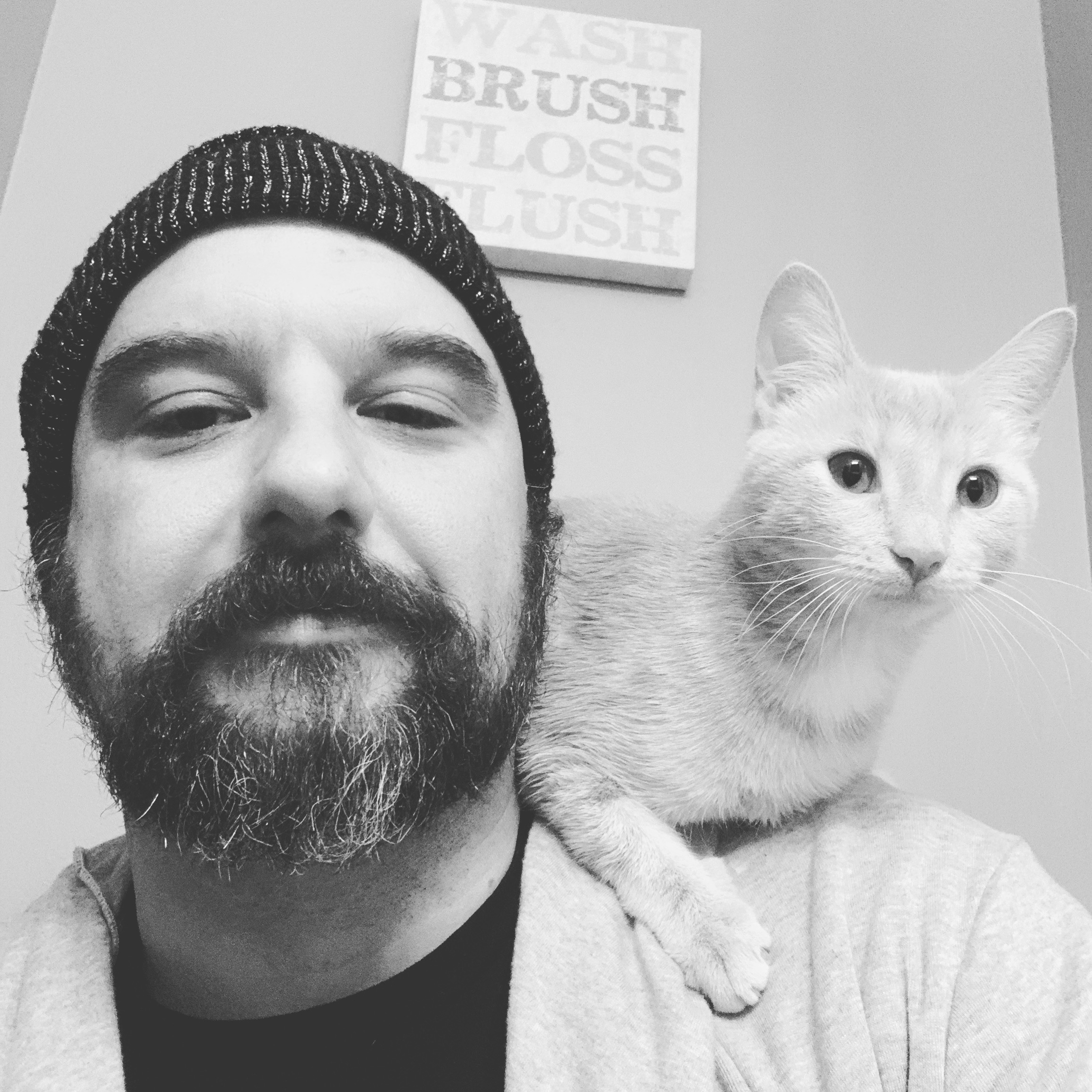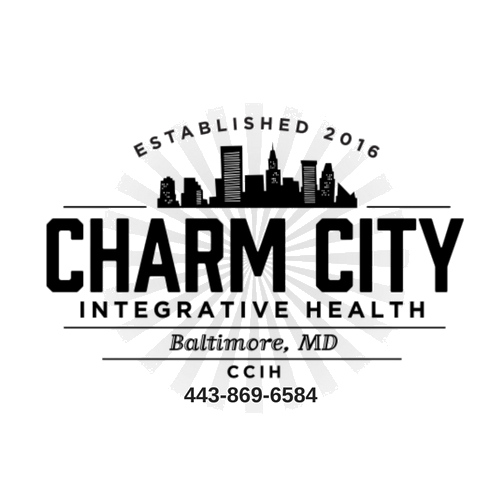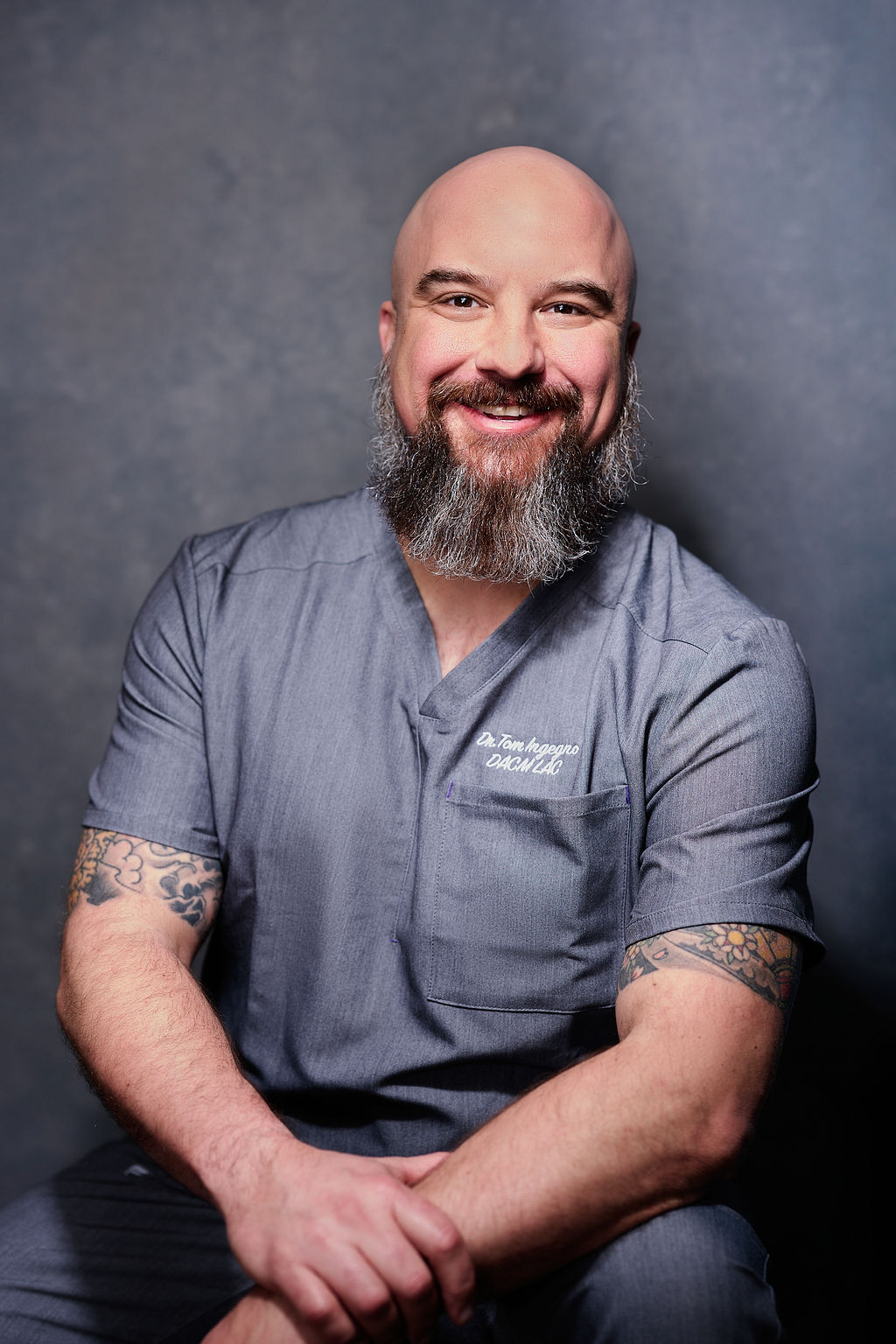Dr. Tom Ingegno, DACM, MSOM, LAC | Source | Lead Clinician, Author, Teacher, Lecturer, Podcast Host at Charm City Integra...

Dr. Tom Ingegno, DACM, MSOM, LAC
Dr. Tom Ingegno, DACM, LAC, is a clinician, speaker, and the best-selling author of The Cupping Book: Unlocking the Secrets of Ancient Healing. Dr. Tom Ingegno, DACM has over 23 years of experience in the integrative and functional medicine space. He owns and operates Charm City Integrative Health, a multifaceted clinic dubbed the "Future of Medicine" by futurist David Houle. His clinic provides a multidimensional approach to reducing inflammation, improving circulation, and regulating the immune system. Tom has taught at two prestigious schools for East Asian Medicine, is a published author, and helped expand the scope for the practice of acupuncture with his role as chairman of the Maryland State Board of Acupuncture. Dr. Tom has been featured in both consumer and professional media, spreading his message of health using modern research, traditional practices, and humor to make complex theories and treatments understandable. His professional passion is to help patients and like-minded practitioners develop no-nonsense practices to allow people to
-
Charm City Integrative Health (https://www.charmcityintegrative.com)
Lead Clinician, Author, Teacher, Lecturer, Podcast Host
started Apr 2001
-
Learning about the practice of cupping at Charm City Integrative Health
Marty Bass is in Baltimore learning about both Eastern and Western medicine and how it can help achieve an optimal level of wellness.
Video -
Is Acupuncture for You? Here’s What Science Says About the Centuries-Old Practice · Organic Spa Magazine
There’s been a resurgent and booming interest in alternative healing modalities, like Reiki, craniosacral therapy,…
Article -
-
Unlocking the Mystery: Waking Up at 3 A.M. Explained
Dr. Tom explains that waking at 3 A.M. may indicate "a disharmony of the Qi" between liver and lung channels, linked to emotions like anger and grief. Scientifically, circadian rhythm disruptions, often due to blue light exposure, or environmental factors could be the cause. Acupuncture may help restore balance and improve sleep quality. -
Acupuncture: A Holistic Solution for Chronic Pain and Opioid Crisis
Dr. Tom explains, "Acupuncture balances energy flow to promote healing." It reduces chronic pain and opioid dependency by improving circulation and releasing endorphins. While generally safe, it's crucial to choose a licensed practitioner. Acupuncture offers a comprehensive approach to pain management, addressing both physical and psychological aspects. -
Acupuncture Expert Dr. Tom Ingegno Offers Insights on Acupressure Mats
Dr. Tom, a seasoned acupuncturist with over two decades of experience, offers his insights on acupressure mats. As the owner of Maryland's largest acupuncture clinic, he has been featured in numerous articles and podcasts. Dr. Tom is available for interviews via email or Zoom to discuss the benefits and uses of acupressure mats.
-
“Acupuncture is a part of traditional East Asian medicine and, as such, is a complete medical system. Somewhere along the way, we were associated with new age practices and called alternative medicine,” says Ingegno, who thinks this could be rooted in the misconception of qi.
“When practitioners refer to qi, we are referring to the ability of the body to perform specific functions when necessary. It is not some mystical force that shoots from fingertips. The concept of qi is an extremely eloquent way of describing a cascade of physiological changes that occur when a patient receives acupuncture.”
While Ingegno admits that his clinic may have some “trendy services” (such as red light therapy, halotherapy and whole body cryotherapy), he stresses that they were added because they, like acupuncture, were evidence-based and had similar physiological effects as acupuncture.
-
Dr. Tom Ingegno DACM, MSOM, LAC explains, "Irritable bowel has several symptoms like constipation and/or diarrhea, bloating, intestinal pain that may be rooted in an inflammatory response to certain foods, or an autoimmune disorder. CB1 receptors which several cannabinoids can bind line the large intestine. When cannabis is consumed it activates these receptors which reduces inflammation helping with the pain and bloating and it's theorized that these receptors play a role in regulating the production of the mucus lining, allowing for the intestinal wall to coat and repair itself."






